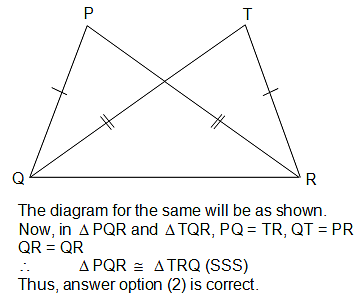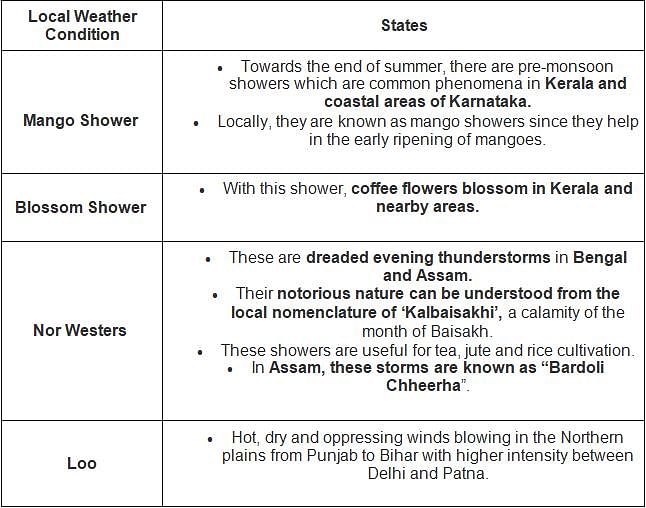KTET Paper 2: Social Science Test - 7 - KTET MCQ
30 Questions MCQ Test - KTET Paper 2: Social Science Test - 7
Read the following statements and choose the appropriate option:
(A) Rudramadevi was the queen of the Gond kingdom of Garha Katanga.
(B) Rudramadevi changed her name on her inscriptions and pretended she was a man.
(A) Rudramadevi was the queen of the Gond kingdom of Garha Katanga.
(B) Rudramadevi changed her name on her inscriptions and pretended she was a man.
In the Constitution of India secularism means
| 1 Crore+ students have signed up on EduRev. Have you? Download the App |
In social science class, if the local health worker is invited to address the children, then the teacher is using which type of resource in teaching?
Which of the following ancient Indian texts means 'approaching and sitting near'?
If children enjoy writing, reading, telling stories or doing crossword puzzles, then they possess
Which one of the following activities is most appropriate for developing an understanding of the Indian Parliament's role and functions?
Consider the following statements:
Statement - I: Shankara was an advocate of Advaita or the doctrine of the oneness of the individual soul and the Supreme God which is the Ultimate Reality.
Statement - II: He taught that Brahman, the only or Ultimate Reality, was formless and without any attributes.
The representation to States in the Rajya Sabha is given on the basis of:
Who among the following influenced the development of Project method?
ΔPQR and ΔTQR are on the same base QR and on the same side of QR. If PQ = TR and PR = TQ, then which of the following is correct?
Which of the following processes destroy(s) the magnetic properties of a bar magnet?
A. Cutting into two pieces
B. Heating
C. Beating
D. Sealing
Deccan plateau is bordered by which physical feature in its western side?
Which amongst the following statement is not appropriate regarding teaching Social Science in upper primary classes ?
Which of the following is the correct statement regarding deductive approach of teaching social science?
The cut-off level of annual income for poverty line is Rs. 18,000 p.a. Rajayya's income is Rs. 21,000 p.a. Choose the correct statement of interpretation.
Which one of the following should be the most noticeable for a Social Science teacher about a discussion held recently?
Examine the following statements and select the correct answer using the code given below:
(A) Mango showers are pre-monsoon showers in the Kerala and Costal areas of Karnataka.
(B) With blossom shower, coffee flowers blossom in Kerala and nearby areas.
(C) Non westers are duststorns in western India.
(D) In Assam thunderstorms are known as 'Bardoli Chheerha'
Assertion (A): In order to make the process of learning participative there is a need to shift from mere imparting of information to debate and discussion.
Reasoning (R): This approach to learning will keep both the learner and teacher alive to social realities.
The Social Science which draws its information from both natural sciences and social sciences is:
Where in Africa is the slash and burn agriculture practised?
At the upper primary stage, according to NCF-2005, the content of Social Studies will draw its content from which of the following subjects?
The most important initial step towards achievement of an aim is
Which one of the following are the general aims of learning social sciences at the upper primary/ elementary school level?
1) To acquaint students with their geographical, social, and cultural environments.
2) To develop in students a sense of social competence and social commitment.
3) To develop democratic citizenship qualities among students.
4) To develop the spirit of patriotism, national feeling, and international understanding among students.
When a teacher enters the activity-based classroom, which of the following aspects convinces the teacher that the activity is going on properly?
I. Children are totally involved in doing work without being distracted by the teacher’s presence
II. If students are asked about what they are doing they could clearly state the objectives and cause of doing that activity
In the Indian freedom struggle, 'Dandi March' marked the beginning of which of the following?
Which of the following is the main objective of evaluation in Social Science?
In the lesson plan presently being prepared in schools, the aspect to be indicated after content analysis is



















